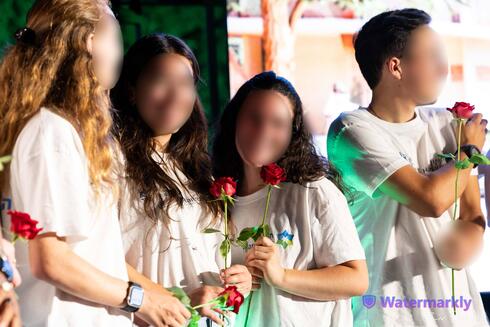New home for lone soldiers opens in Israel, welcoming North American recruits ahead of IDF service
By Ynet Global
Copyright ynetnews

A new home for lone soldiers was inaugurated Tuesday at the Hannaton Educational Center in northern Israel, marking a first-of-its-kind initiative to integrate young Jewish immigrants into the IDF alongside their Israeli peers. Approximately 30 young adults from North America, who recently immigrated to Israel through the Garin Tzabar program of the Israeli Scouts Movement, will be the first cohort to move into the home. These new immigrants—known in Israel as lone soldiers due to their lack of immediate family in the country—are beginning a year of service and army enlistment. Unlike previous lone soldier programs, which often placed recruits in exclusively religious or secular communities, Hannaton offers a pluralistic and egalitarian environment. Residents will live alongside Israeli participants of the center’s pre-army leadership academy, or mechina, sharing cultural events, weekends and holidays on a shared campus. The lone soldier project, which was launched in partnership with Keren Kayemet LeYisrael (KKL-JNF), JNF USA, and additional partners, includes a pre-army preparation period, practical and emotional guidance throughout the participants’ service and post-army support as part of Hannaton’s broader alumni network and activities. Representatives from KKL’s Fundraising and Engineering Divisions, who closely accompanied the establishment of the project, also attended the event. Rabbi Yoav Ende, head of the Hannaton Educational Center, noted the thousands of lone soldiers currently serving in the IDF, emphasizing that each has a personal story and motivation behind their decision. According to Ende, the events of October 7 underscored many of these soldiers’ deep commitment to the IDF and the people of Israel. “For them, this is a conscious choice—to become an inseparable part of the Jewish people’s social and historical fabric,” he said. ”Throughout history, many lone soldiers stood on the front lines and fought heroically alongside their Israeli-born comrades. Some fell in battle, far from their biological families, but surrounded by the love and appreciation of their second family – the people of Israel. “Throughout their service, these soldiers face many unique challenges, often accompanied by feelings of loneliness in the absence of close family. With us, they will not be alone. They will take part in a program designed to provide them with the tools they will need for a successful integration into Israeli society and to make a meaningful contribution—not only during their service but long after. We see them as the future generation of Israeli leadership and we aim to provide them with the skills they need to succeed in all ways.” KKL-JNF Chairwoman Yifat Ovadia-Luski, speaking at the ceremony, said the initiative aligns with the organization’s core values: “Zionism, aliyah, attachment to the land and love of Israel.” She also emphasized the importance of strengthening Jewish presence in the Galilee. One such immigrant is Ariana, 23, from Chicago, who explained that the pluralistic environment back home is what made her feel called to choose Hannaton. “I thrive in an environment where I get to learn from diverse perspectives. I wanted to be part of a community that honors Shabbat, while also enabling me to take an active leadership role in an egalitarian minyan,” she said. “My family and friends are proud of me for pursuing this dream and are standing behind me. It feels important to come to Israel during such a difficult and tense time. I want to help build the Israel I believe in, and I look forward to the new challenges that lie ahead this year—really thinking about what I stand for and what mark I want to leave behind.” Ilan, 22, from Philadelphia, grew up in a Zionist home and always felt that Israel was his true home. He said that growing antisemitism on his American campus pushed him to make the move. “My parents asked me to finish my degree first, but I always knew that one day I would move to Israel and enlist.” Ilan said. “Life at an American university showed me the true cost of being Jewish. My baseball teammates would call me ‘the Jew,’ and anti-Israel protests on campus became routine. It made me angry. I wanted to come to Israel, to be in a place where I could feel free to truly be myself. In the army, I aim to join a special forces unit. It’s important for me to serve in combat, to defend our nation, so that the events of October 7 can never happen again. My grandfather was a Holocaust survivor who later moved to Israel and defended Kibbutz Sa’ad during the War of Independence. Now it’s my turn to carry on his legacy.” Yair Ran Peled, CEO of the Garin Tzabar program, called the project “a national undertaking” and praised the partnership with Hannaton as key to its success. “Our ability to create and build partnerships with excellent organizations like Hannaton is the key to our success,” he said. “Especially now, supporting these brave new immigrants is a national undertaking, and we are proud to lead this important effort.” The center raised 800,000 NIS through a crowdfunding campaign with over 1,000 donors to fund the new facility, which provides a comprehensive support network. In addition to campus life, each lone soldier will be “adopted” by a local family to help ease their integration into Israeli life. Representatives from KKL-JNF’s Fundraising and Engineering Divisions, who were closely involved in establishing the project, also attended the event.



